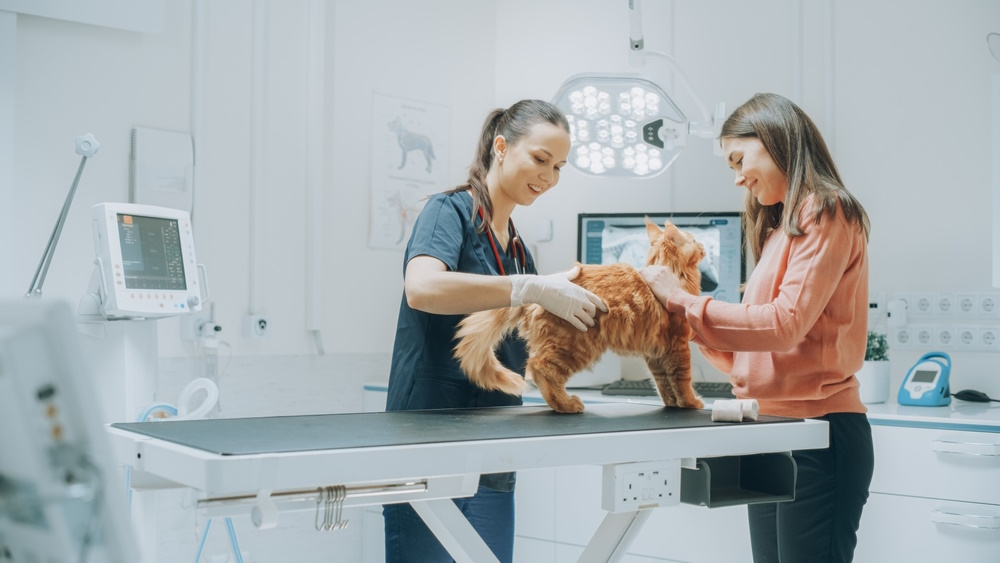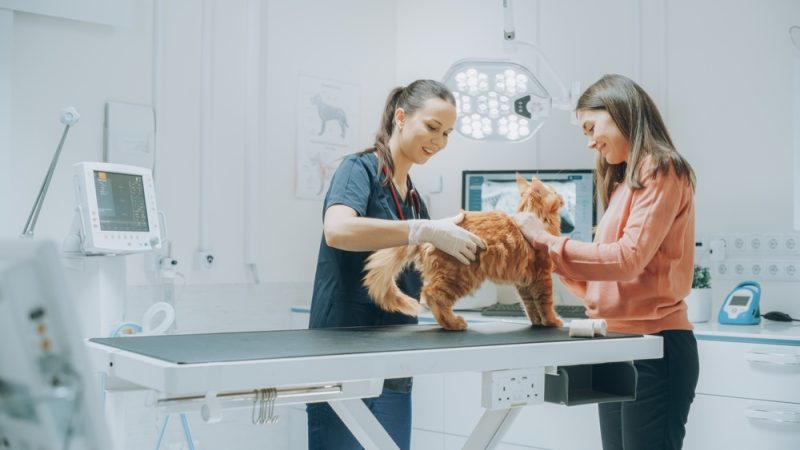Click to Skip Ahead
Whether you adopt a kitten, a young cat, or a feline already in their senior years, eventually you’ll need to care for them when they’re older. While those with younger pets don’t have to worry about this for a while, if you already have an older cat who is starting to enter their senior years or you just recently adopted a senior, you’ll need to understand that taking care of pets at this age is a bit different than caring for a young cat in their prime.
It’s a lot to navigate, but once you have a thorough understanding of what it takes to care for an older cat, we’re confident it’s something you can navigate!
What Does a Vet Do at a Senior Cat Wellness Check?
A senior cat wellness check at a licensed vet’s office is an essential part of keeping your feline friend happy and healthy, but what exactly does it include? Well, a senior cat wellness check consists of five main components to help a vet detect potential health problems while they’re still treatable. Also, unlike taking a younger cat in for a wellness check once per year, it’s suggested to take senior cats in about every 6 months to stay on top of any health concerns that could arise with age.
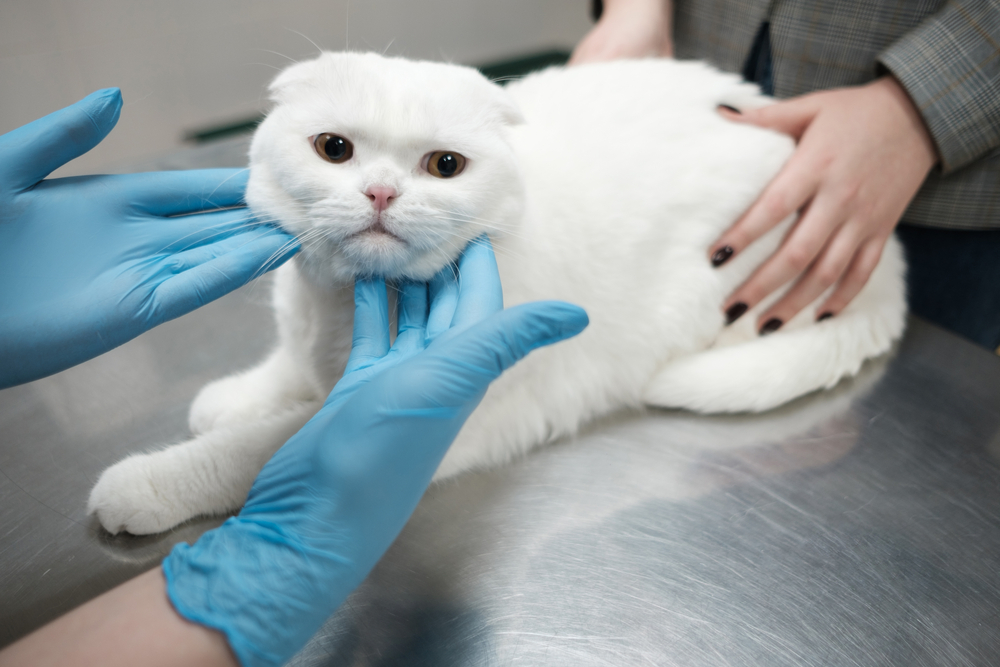
Urine Test
Urine tests are one of the best ways to check a feline’s kidneys, but that’s not all it checks. It also checks for infections in the urinary tract and can help detect diabetes. It’s an essential part of a senior cat wellness check.
Bloodwork (aka Lab Work)
Just like when you go to the doctor and they run bloodwork on you to see what’s wrong, the same is true for your cat. Bloodwork can tell you all sorts of things going on with your cat, even if you can’t see any visible changes, making it a crucial tool for early detection.
- Hormones
As cats age, their thyroid can start acting up, and it’s a hormone test that lets a vet see if everything is working the way it should. Regulating their hormones can help keep your cat’s mood in check, help with their metabolism, and reduce the strain on several of their organs.
- Blood Profile
This part of the lab work gives information about the various organs, and how well they are functioning. This includes the liver, and kidneys. The thyroid is often included as part of this profile, as well. Some testing will also group electrolytes and complete blood counts into lab work, along with a biochemistry profile, which gives the most complete picture about your senior cat’s health.
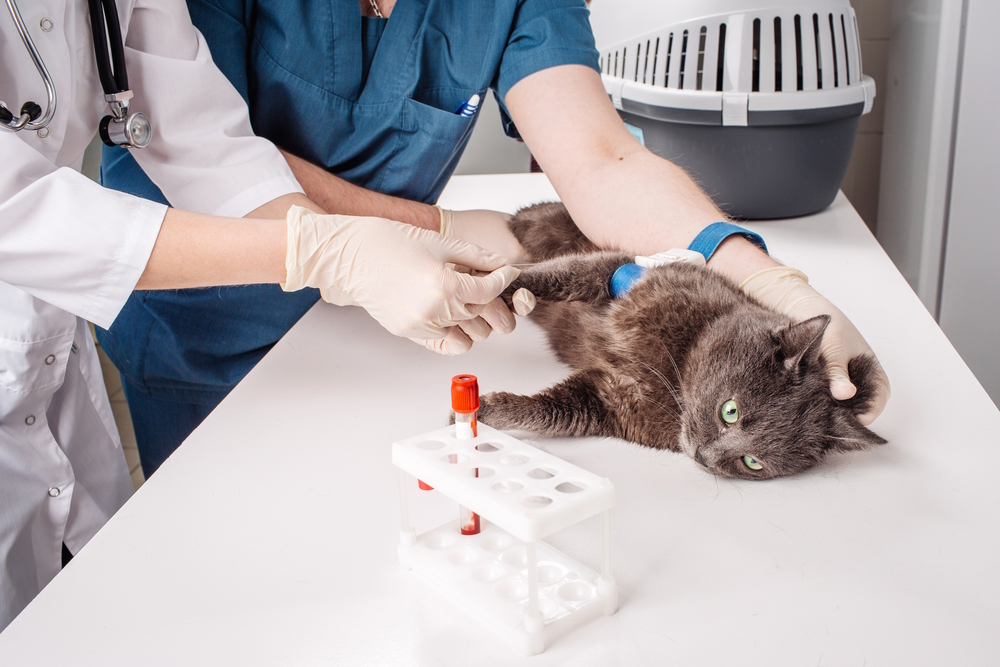
- Urinalysis
Sometimes included with the bloodwork, is urine sampling. Depending on how the sampling is obtained and processed, this can check for kidney function, infections, and crystals. Urine can be a great tool to detect very subtle changes in your cat, and catch them early before major complications may arise.
- Blood Pressure Check
Although not technically lab work as it doesn’t involve sampling blood or urine, a blood pressure check in a senior cat is a must do. When your cat’s blood pressure is too high, it can put undue pressure on various organs, and if left untreated, it can lead to deadly hypertension. Hypertension is usually treatable with medication, but it won’t show any outward signs or symptoms, and if you don’t treat it, then it can be deadly.
Tips for Caring for a Senior Cat
Having an older cat means dedicating more time to caring for them. Missteps can lead to big problems for older cats, which is why we took the time to highlight five of the most crucial tips you need to follow while caring for a senior.
1. A High-Quality Senior Diet
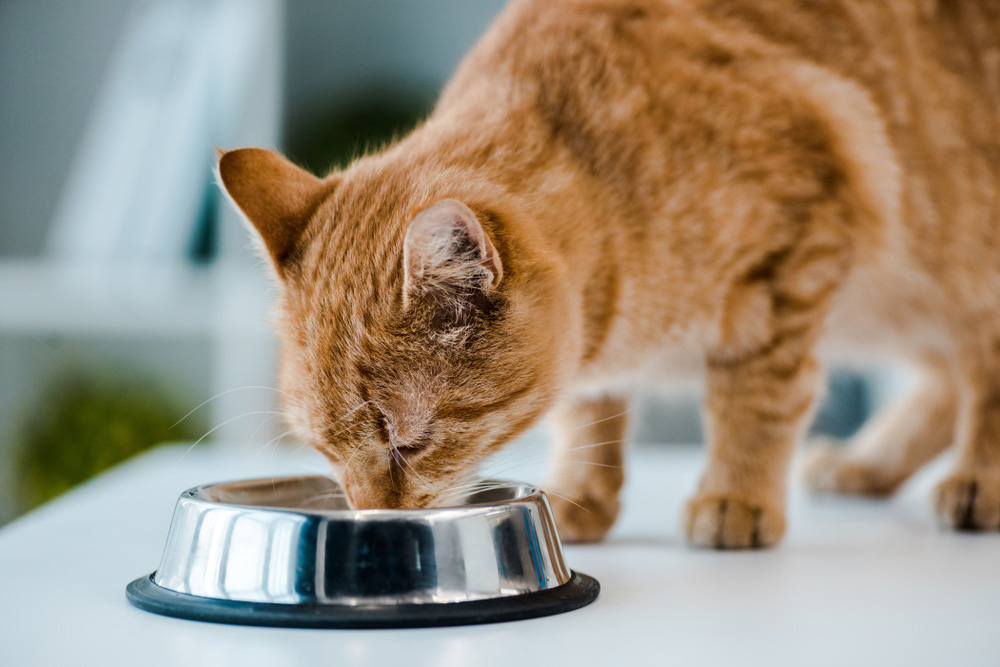
Low-quality food isn’t good for any pet, but it’s especially detrimental to older cats. Talk with your vet about transitioning your cat to a senior food. They will help figure out your cat’s optimum weight and will be able to recommend senior-specific foods to help them get to or maintain an ideal weight.
2. Keep Up with Dental Care
If you haven’t kept up with your cat’s dental hygiene, they might need professional help when they’re a senior. Dental disease is common in aging cats. They can experience gum disease, oral tumors, broken teeth, etc., all of which will affect their quality of life. On top of that, if an infection of the mouth enters the bloodstream, it can affect the heart, liver, and kidneys. So, you need to pay special attention to the mouth area.
3. Keep Them Moving
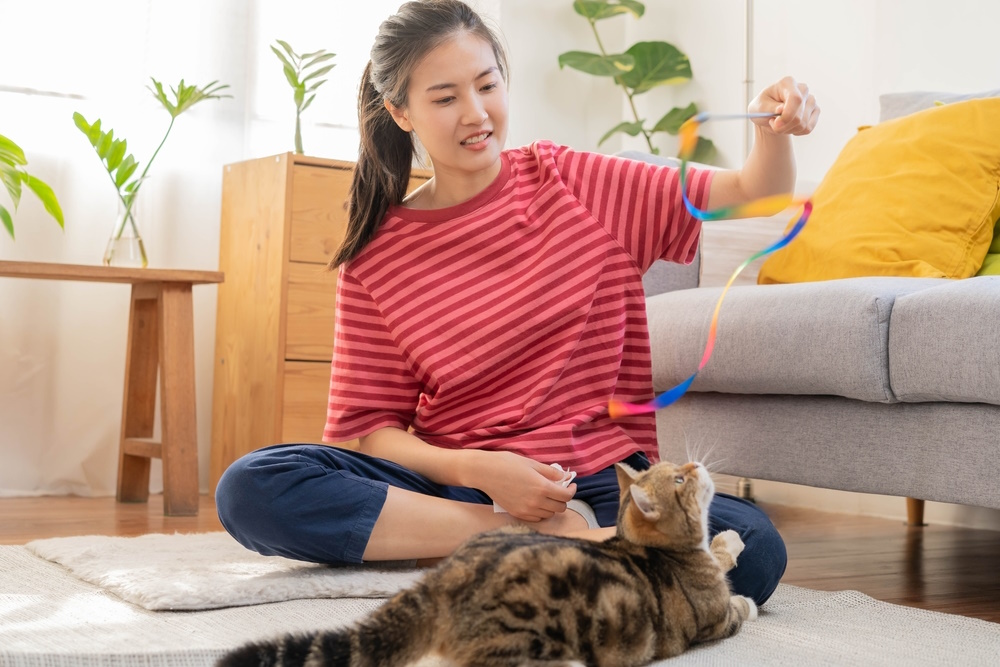
Keeping your cat physically active for as long as possible makes a huge difference in how long they’ll stay healthy. Keep playing games with them, keep them mentally stimulated, and ensure they’re meeting their daily exercise needs. They don’t need to move as much as they did when they were kittens, but don’t let them sleep their days away either.
Also, if your older kitty is having trouble moving around, consider using cat ramps or stairs to aid in climbing. Arthritis is common in older cats, and while your pet still needs to move, it can be harder on them, so you should do your best to ensure movement is gentle on their little bodies.
4. Watch Out for Pain
Cats don’t show pain the same way we do, and since they can’t tell us how they’re feeling, it’s up to you to take the necessary steps to notice and treat it. You need to be mindful about paying closer attention to your cat’s body and their behavior. If anything ever seems out of the norm, it’s best to phone your vet for advice.
5. Take Them to the Vet Twice Per Year
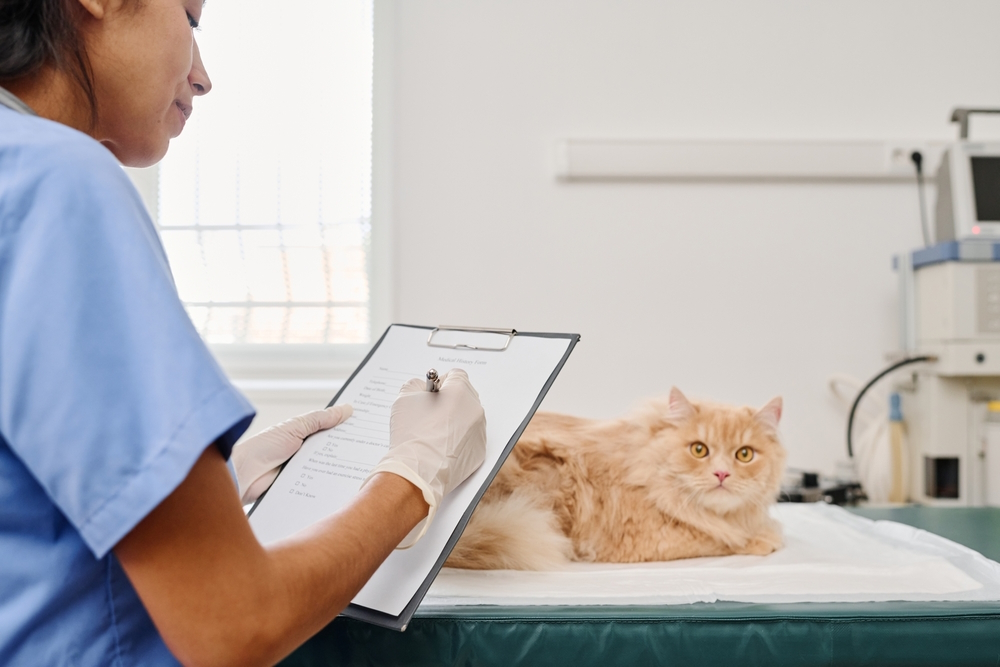
As we’ve already mentioned, most cat owners do a wellness check about once per year, but it should be at least twice a year with a senior kitty. This ensures that your vet always has a clear picture of what is going on with your cat’s body as they age and increases the chances of them catching any major issues early on so that they can be better treated.
Final Thoughts
Now that you know a little more about the basics behind caring for an older cat, it’s up to you to ensure you’re meeting their needs and taking them to the vet enough so they can tell you what’s going on. We know it can be a bit of a hassle, but it’s ensuring your senior cat lives as long as possible and with as little pain as possible, so it’s worth it to stay on top of things.
Featured Image Credit: Gorodenkoff, Shutterstock

